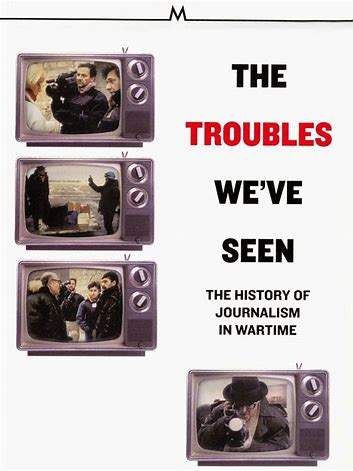Marcel Ophuls’ tragically underseen The
Troubles We’ve Seen is a marvelously provocative work, knowingly untidy and
digressive and sometimes downright eccentric, but all the more stimulating and
debate-sparking for that. The film is subtitled “A History of Journalism in
Wartime,” but it's far less linear and comprehensive than this might
suggest: the overwhelming focus is on the then-current war in Serbia, and on
Sarajevo in particular, with other conflicts mentioned in more fragmented form
along the way. Ophuls structures the first part primarily around his own
trip to Sarajevo and his observations and interactions there; the second spends
more time on various ethical and practical issues, such as whether warzone
journalists should travel in armoured vehicles for their protection, or whether
that would primarily serve to distance them from realities and to over-align
them with the military. In often jarring ways, Ophuls contrasts the stark
(although, as is acknowledged, not entirely fun-starved) realities of the
war-reporting game with the comforts of life in Vienna and Venice (a short
distance and a whole world away from Sarajevo), and the imagery of war with various
snippets of classic Hollywood, from Hawks to Holiday Inn. The film’s
opening point (made eloquently by Philippe Noiret of all people) draws a comparison
between Bosnia and WW2, and the degree to which moral and strategic failure can
be attributed to lack of information; watched in 2023, comparable, desperately
acute parallels between what’s shown and debated and the current situation in
Ukraine arise at every turn. Which is to say that however dated the film may
seem in some of its particulars (and, to some, further distanced by the relative
focus on French TV personalities), it speaks no less strongly to the eternal issue
of how to engage (that is, as something other than mere compliant,
capitalism-friendly consumer) with media assertions on what we need and deserve
to know.


No comments:
Post a Comment